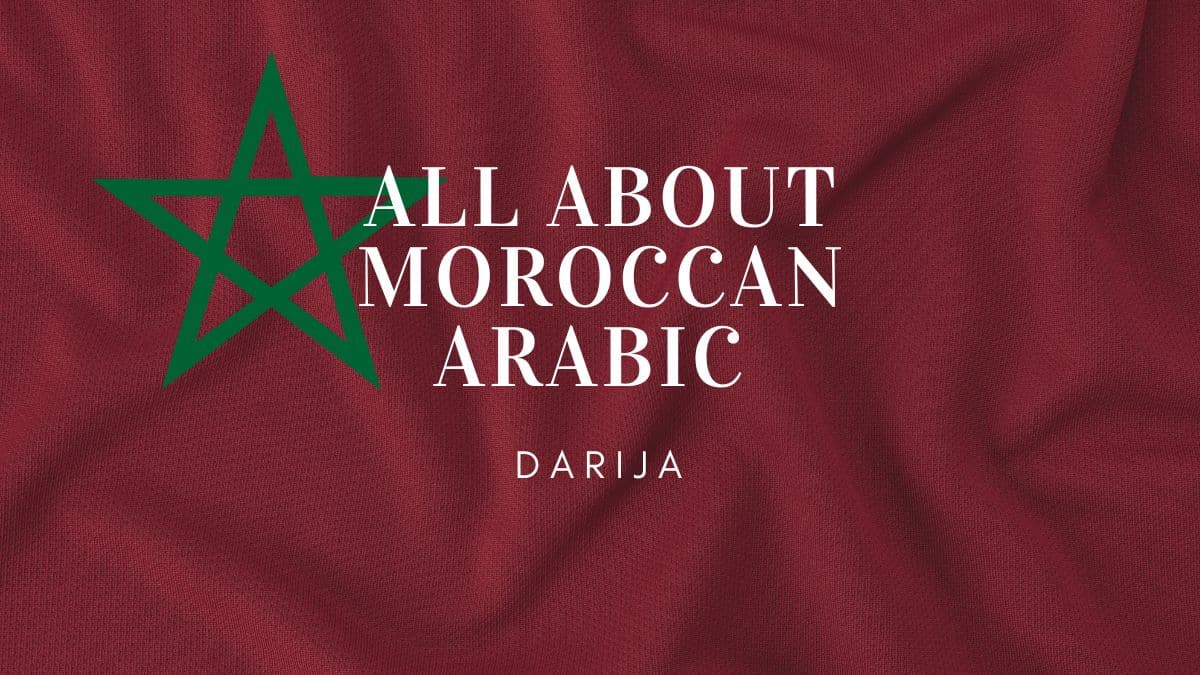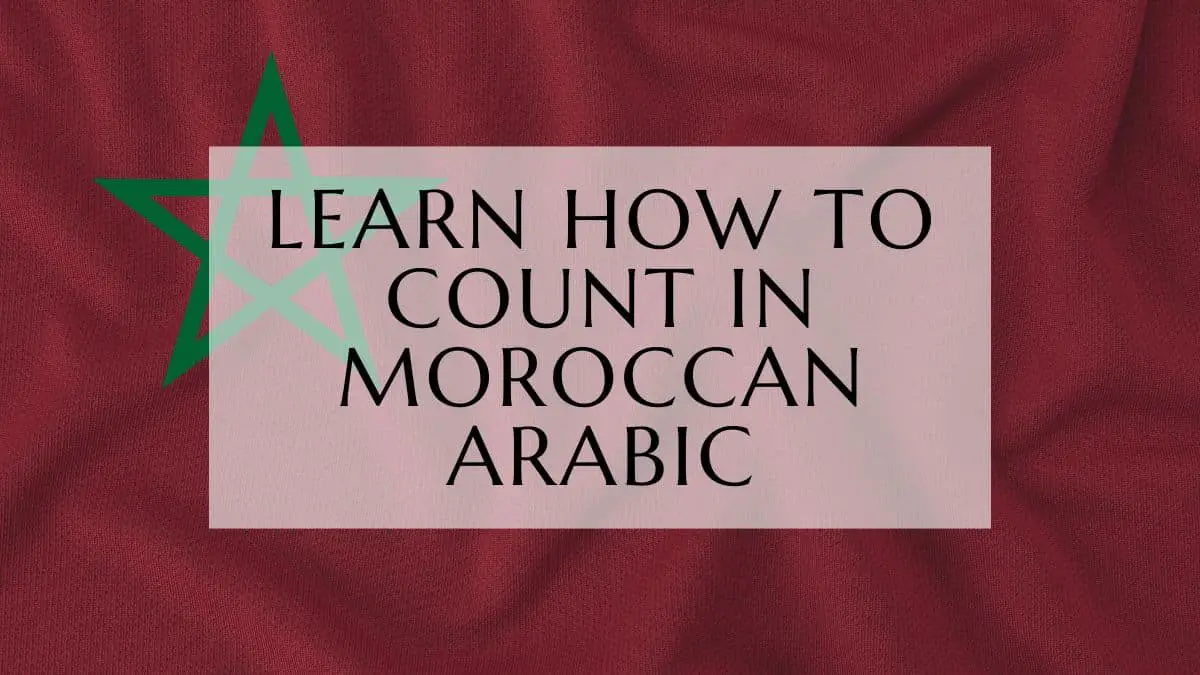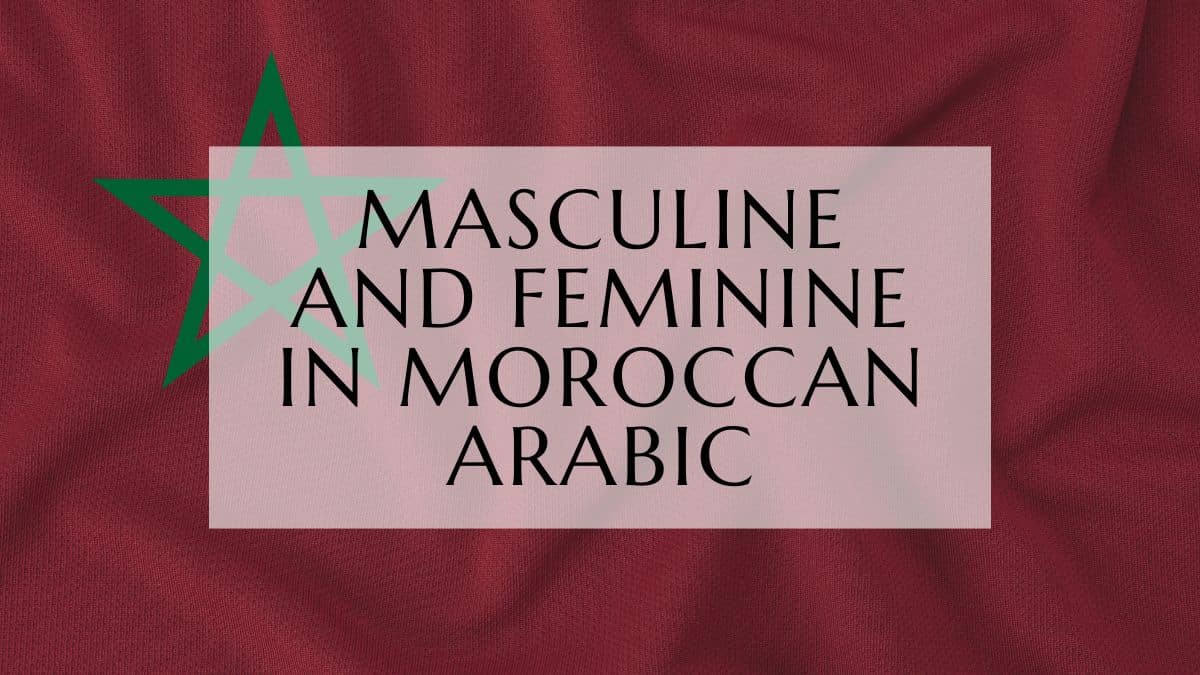Saying “no” in Moroccan Arabic can be tough, especially for beginners. But learning this key no in Moroccan Arabic is vital for good communication. This guide will show you how to negate en Darija. You’ll discover how to politely turn down requests and deny statements firmly. It will help you handle everyday conversations in Moroccan Arabic with confidence.
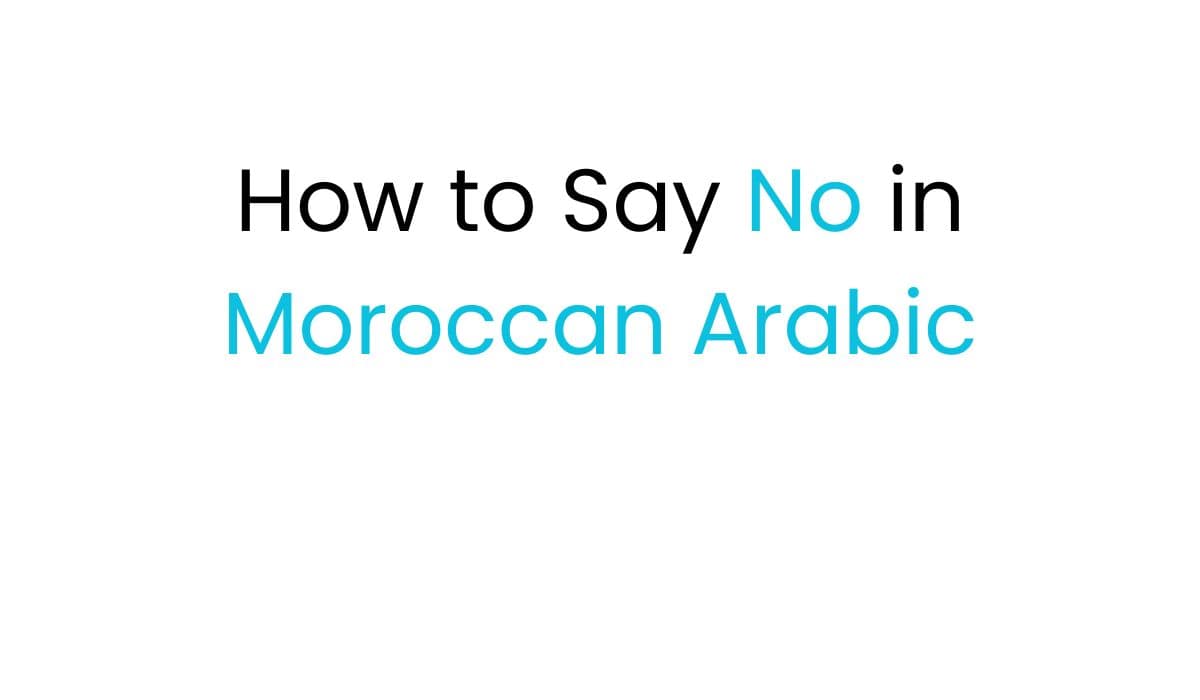
This guide is for everyone, from beginners to advanced learners. It will teach you to say “no” like a native Darija speaker. You’ll get the skills to communicate clearly and effectively in Moroccan Arabic.
The Basics: How to Say No in Moroccan Arabic
Learning Moroccan Arabic means knowing how to say “no” well. The word “لا” (la / no) is known worldwide, making it key for language learners.
The Word “No”
The word “لا” (la / no) in Moroccan Arabic is the English version of “no”. It’s a simple way to say “la” useful for many situations.
Using “La” with Verbs
To negate verbs in Moroccan Arabic, just put (ما) before them and “ش” (sh) at the end. See the examples:
| English Sentence | Moroccan Arabic Translation |
|---|---|
| I do not speak Spanish. | ماكانهدرش السبنيولية (makanehdersh spanyoliya / I do not speak Spanish). |
| She does not like this movie. | ماكيعجبهاش هاد الفيلم (makaya’jabhash had lfilm / She does not like this movie). |
| They do not want to go to the party. | مابغاوش يمشيو للحفلة (mabghawsh yemshiw lel hafla / They do not want to go to the party). |
Knowing how to use “لا” (la / no) in Moroccan Arabic helps you say “no” clearly. This skill is important for more complex talks.
Other Negative Words in Moroccan Arabic
The word “لا” (la / no) is the main way to say “no” in Moroccan Arabic. But, more words show different kinds of denial. Learning these words helps you talk better in Moroccan Arabic.
والو (walo / nothing), حتا واحد (hta wahed / no one), عمر (’emmer / never)
والو (walo / nothing) means “nothing,” حتا واحد (hta wahed / no one) means “no one,” and عمر (’emmer / never) means “never.” You can use these words alone or with “لا” (la / no) to make your denial stronger. For example, “ما شفت والو” (ma sheft walo / I saw nothing) or “عمرني ما كليت لحم” (’emmerni ma klit lhem / I never eaten meat).
حتا واحد (hta wahed / no one), حتا حاجة (hta haja / nothing)
The words حتا واحد (hta wahed / no one) and حتا حاجة (hta haja / nothing) say there is nothing or no one, like “no” or “none” in English. They match the gender and number of the noun they describe. For example, “ما عندي حتا كتاب” (ma ‘andi hta ktab / I don’t have any books) or “ما شفت حتا طبلة” (ma sheft hta tabla / I don’t see any tables).
Knowing these negative words in Moroccan Arabic lets you say “no” in a more precise and detailed way. This makes your speaking more natural and advanced.
لا (la / no) in Moroccan Arabic
The word “لا” (la / no) in Moroccan Arabic is a key negation particle. It can negate verbs, nouns, adjectives, and adverbs. Where you put “لا” (la / no) in a sentence depends on what you’re negating. But, the rule is to put it right before what you’re denying. Learning how to use “لا” (la / no) correctly is key to clear negation in Darija.
Negating Sentences with “No”
Using “لا” (la / no) to negate a sentence changes based on what you’re denying. Here are some examples:
Negating a verb: ما غنمشيش للحديقة (ma ghanemshish lel hadiqa / I don’t go to the park).
Negating a noun: ما عنديش كلب (ma’andish kalb / I don’t have a dog).
Negating an adjective: ماشي آمن (mashi amen / It is not safe).
Negating an adverb: ما كانهدرش السبنيولية بطلاقة (makanehdersh spanyoliya btlaka / I don’t speak Spanish fluently).
In Moroccan Arabic, double negatives are often correct, unlike in English. For example, عمرني ما كنشرب الشراب (emmerni ma knshrb shrab / I never drink beer) is a proper way to express negation.
Knowing how to use “لا” (la / no) in Moroccan Arabic is vital. It helps you communicate clearly and accurately.
Polite Ways to Say “No” in Moroccan Arabic
Saying “لا” (la / no) in Darija can be direct, but there are polite ways too. These polite expressions help you decline nicely and keep relationships positive. They let you say “لا” (la / no) without hurting feelings.
لا شكرا (la shukran / No, thank you)
“La shukran” means “No, thank you” and is a polite way to say no. It shows you appreciate the offer but still say no. This way, you stay friendly and clear about your choice.
لا لا (la la / Of course not or Certainly not)
For a stronger “no” that’s still polite, try “لا لا” (la la / Of course not). These say “no” clearly but stay polite. They’re good for rejecting something strongly without being rude.
Using these polite “لا” (la / no) phrases changes how people see your messages. Learning to say “لا” (la / no) nicely helps you talk in Darija with care. You can keep relationships positive even when you can’t agree.
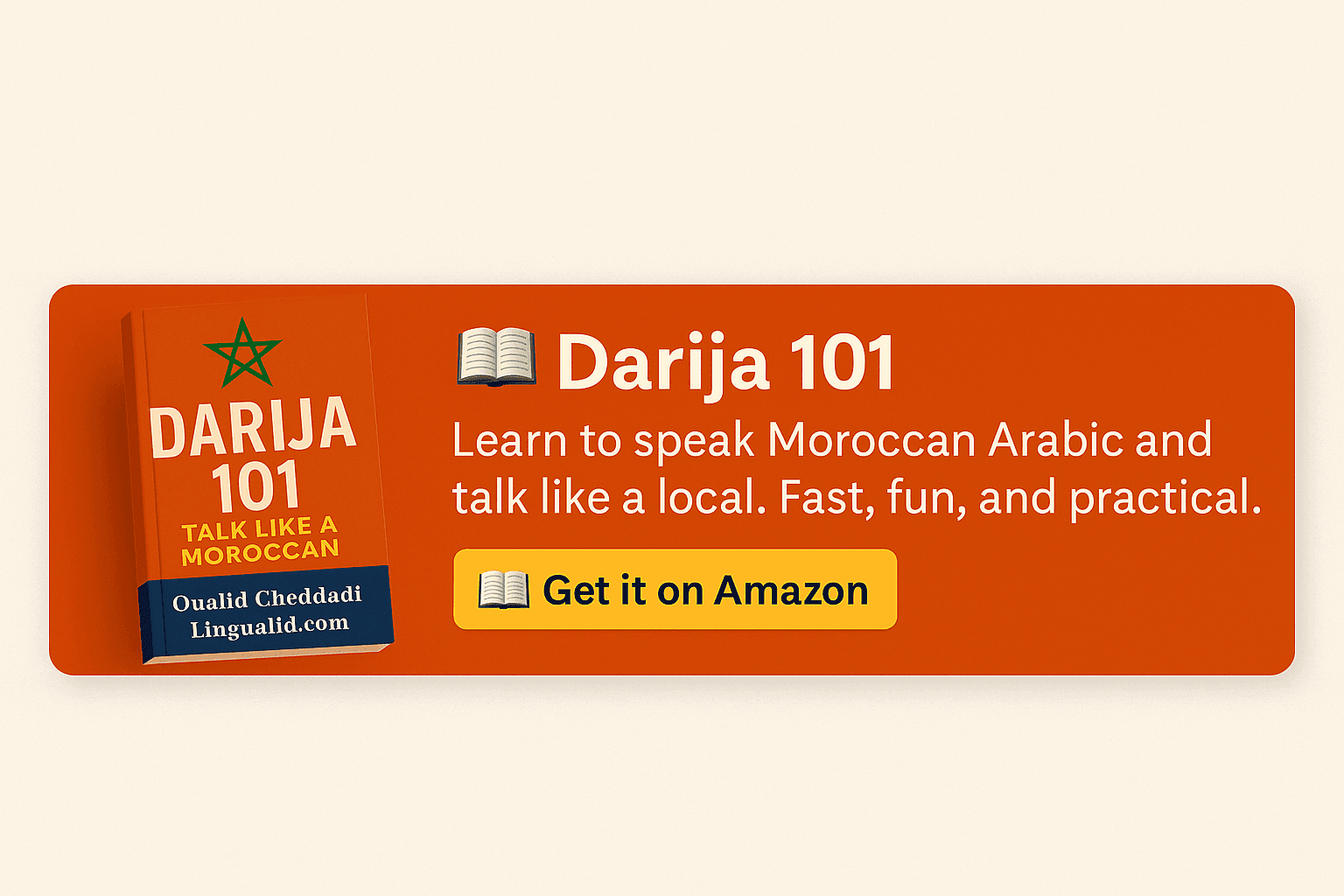
Informal and Colloquial Expressions
Moroccan Arabic has formal and polite ways to say “لا” (la / no). But it also has informal and colloquial expressions. These phrases make rejections sound more relatable and natural. They let Moroccan Arabic speakers talk in a way that feels more like a conversation with friends.
متفكرش فيها (matfekersh fiha / don’t even think about it) and ف احلامك (f hlamek / in your dreams)
متفكرش فيها (matfekersh fiha / don’t even think about it) and ف احلامك (f hlamek / in your dreams) are great examples of these informal expressions. They’re used with friends, family, and in everyday situations. They give Moroccan Arabic speakers other ways to say “لا” (la / no) that are not as formal.
They are used to reject a request or idea strongly, and to quickly say no to a suggestion or question.
These expressions add personality and relatability to Moroccan Arabic. They help speakers say “لا” (la / no) in a natural way. Knowing these makes it easier to talk with native speakers and connect on a casual level.
Strong Refusals and Denials
When saying “لا” (la / no) isn’t enough, Moroccan Arabic has stronger ways to say no. These phrases make it clear and leave no doubt. They help Moroccan Arabic speakers express their strong refusals clearly.
ولا شي حاجة من هاد شي (wala shi haja men had shi / none of this)
ولا شي حاجة من هاد شي (wala shi haja men had shi / none of this) is also strong in denial. They show you totally reject the idea, making it clear you won’t consider it.
These strong ways of saying no are great when you need to be clear. They work well against persistent requests or ideas you strongly dislike. Using these phrases makes your stance clear and avoids confusion.
Emphatic and Poetic Expressions
The Darija language has many ways to say “لا” (la / no) with style. Phrases like “متفكرش فيها” (matfekersh fiha / Don’t even think about it), “يا ريت” (ya reet / I wish), and “ف احلامك” (f hlamek / In your dreams) are more than just a simple “لا” (la / no). They add color and personality to what you say.
These expresión de negación are great for adding emphasis, sarcasm, or humor. They let Moroccan Arabic speakers express themselves with flair, going beyond just saying “لا” (la / no) en idioma Darija. These negación castellana expressions show how rich and versatile Moroccan Arabic can be. They help users say their part.
Oualid Cheddadi is the founder of Lingualid, a platform that inspires independent language learners worldwide, regardless of the language they are learning. The name “Lingualid” is derived from the Portuguese word for “language,” “língua,” and the last three letters of Oualid’s name, “Lid.”

